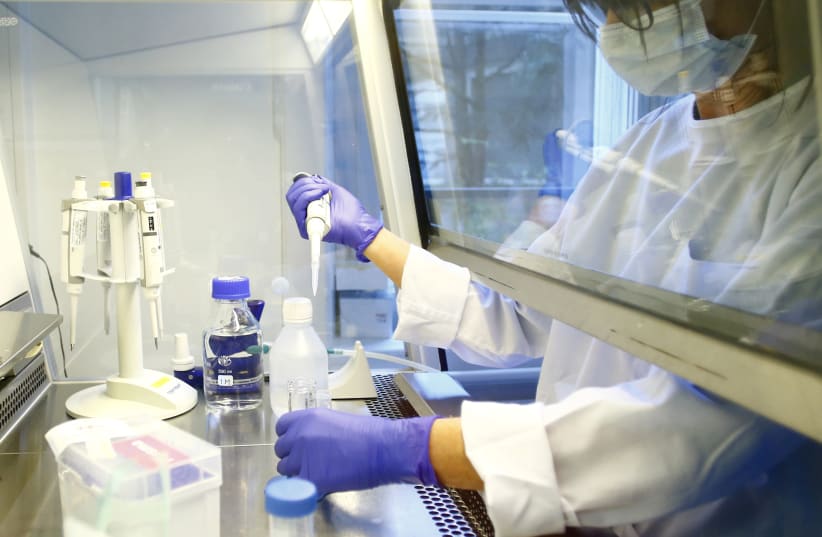With its four deals so far, Britain has struck more coronavirus vaccine supply agreements than any other country, securing 250 million doses for a population of 66 million.
But with no vaccine yet proven to work, a range of potential suppliers is seen as giving the best chance of success.
"The fact remains that there are no guarantees," said business minister Alok Sharma.
"It is important that we secure early access to a diverse range of promising vaccine candidates ... to increase our chances of finding one that works."
Sanofi and GSK confirmed in a statement that regulatory approval for their vaccine could be achieved by the first half of 2021 if clinical data was positive.
It is Sanofi and GSK's first deal to supply their experimental coronavirus vaccine to a country.
Financial terms were not disclosed.
Asked about the price, GSK CEO Emma Walmsley said only that GSK did not expect to profit from the product during the pandemic and any short-term earnings would be partly be reinvested into pandemic preparedness and donated to developing countries.
With more than 20 vaccines in human trials, the move could stir concerns that rich countries, including the United States and those in Europe, are scooping doses in advance, potentially to the detriment of poorer nations.
Last week, Britain struck deals for 30 million doses of an experimental BioNtech/Pfizer vaccine, and a deal in principle for 60 million doses of Valneva's potential shot, which followed a previously announced deal for 100 million doses of an experimental Oxford/AstraZeneca vaccine.
The EU and United States have secured 400 million and 300 million doses of the Oxford/AstraZeneca shot respectively, while the U.S. government has also agreed to buy 100 million doses of the Pfizer/BioNtech vaccine, with an option for 500 million more.
The Sanofi/GSK vaccine combines Sanofi's S-protein COVID-19 antigen and GSK's pandemic adjuvant technology, and the first clinical trials are expected in September.
Adjuvants are efficacy boosters that play a vital role in many traditional vaccines. Sanofi and GSK's vaccine uses a different approach from either the Oxford/AstraZeneca or Pfizer/BioNtech vaccines.
Sanofi and GSK said talks to supply their vaccine to the EU, Italy and France were ongoing.
The two firms hope to clinch a deal soon to provide 300 million doses to the EU, though two sources told Reuters that negotiations had stalled.Britain decided against joining the EU's vaccine purchase scheme in order to strike its own deals.
